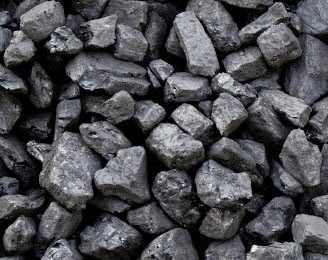Scientificmeap can you explain to the audience what natural resources are? Scientificmeap: Sure, natural resources are resources that naturally are available in the environment. There are two types of resources renewable resources and nonrenewable resources. Scientificmeap: Well, what are renewable and nonrenewable resources? Sciencecat: I was just getting to that. A renewable resource is a natural resource which can replenish with the passage of time, either through biological reproduction or other naturally reoccurring processes. Some examples are trees, water, the sun and wind because we will never run out of them.
Nonrenewable resources are resources that we will eventually run out of someday. Like coal, oil, and minerals.
Now we are going to talk about fossil fuels which are natural fuels such as coal or gas, formed in the geological past from the remains of living organisms. Fossil fuels are considered nonrenewable resources because Earth only has a limited supply of them and if we use up all the fossil fuels there is no way we can bring them back. Scientificmeap: Now I understand what nonrenewable and renewable resources are. I'm happy for you but we must move on now. Scientificmeap: Ok.
Scientificmeap, can you tell us why nonrenewable resources are used more than renewable resources? Scientificmeap: It's simply because more energy comes from the nonrenewable resources than the renewable resources, therefore we use more of the nonrenewable resources.
Now we are going to talk about solar energy, wind energy, and hydroelectric power. There are some advantages and some disavantages. So, Scientificmeap can you tell us some advantages and disadvantages of solar energy? Scientificmeap: Ok here are some for solar enrgy, for solar energy some advantages are: It's highly unexpected that we will run out of it soon, it doesn't cause pollution, and Solar cells make absolutely no noise at all. Some disavantages are: Haveing solar panels installed on your roof is very expensive, the batteries can be big and heavy and can take up a lot of space. Now I am going to tell you some advantages and disadvantages of wind energy. Some advantages are: Once the wind turbine is built the energy it produces does not cause green house gases or other pollutants, the wind is free and with modern technology it can be captured efficiently, many people find wind farms an interesting feature of the landscape. Some disadvantages are: many have been injured because of wind turbines, they expensive to keep and maintain, there has to hills and open space for them to be installed.
Scientificmeap: Ok we have one thing to tell you advantages and disadvantages about, and it is hydroelectricity. Some advantages are: Using dams can make a lot of energy, dams are designed to last a long time, they do not pollute the atmosphere. Some disadvantages are: many places have been flooded to make the dams, they are very expensive to build, and the building of dams can cause serious geological damage.
Now we are going to learn about conservation. The definition of conservation is the action of conserving something in particular. Conservation is to all living things. Conservation is also very important to prevent floods, fires, new deserts and drought. It is important to protect habitats and natural areas like rainforests. If we allow the destruction of rainforests it will increase the production of greenhouse gases which make the world warm up. This results in melting of Arctic and Antarctic ice caps, rising sea levels and flooding of low lands.
Well, thanks for reading my blog! See you next time.
Information links:
Picture links:








No comments:
Post a Comment